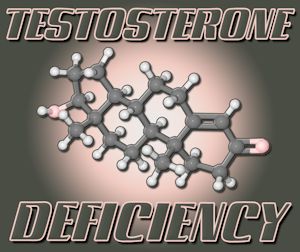Introduction
In the realm of men's health, sexual function plays a critical role in overall well-being and quality of life. Recent research has shed light on the potential impact of various medications on penile function, a concern that affects a significant number of American males. A comprehensive study involving over 8,000 participants has provided valuable insights into how medication histories correlate with sexual health outcomes. This article delves into the findings of this study, offering a detailed analysis of the effects of common medications on male sexual function.
Study Overview and Methodology
The study in question was conducted with the aim of understanding the relationship between medication use and penile function in American males. Over 8,000 participants were involved, each providing detailed histories of their medication use. The research utilized a combination of self-reported data and clinical assessments to evaluate sexual health outcomes. Participants were categorized based on the types of medications they were taking, allowing researchers to identify patterns and associations between specific drugs and sexual dysfunction.
Key Findings on Medication Impact
The study revealed several notable findings regarding the impact of medications on penile function. Antidepressants, particularly selective serotonin reuptake inhibitors (SSRIs), were found to be associated with a higher incidence of erectile dysfunction (ED). Approximately 30% of participants taking SSRIs reported experiencing ED, compared to a baseline rate of 15% in the general population. This suggests a significant correlation between these medications and sexual health issues.
Beta-blockers, commonly prescribed for cardiovascular conditions, were also linked to sexual dysfunction. The study found that 25% of men on beta-blockers reported difficulties with erections, highlighting the need for careful consideration when prescribing these medications to male patients.
Additionally, the research identified a link between antihypertensive medications and sexual function. Diuretics, in particular, were associated with a higher risk of ED, with 20% of participants on these medications experiencing sexual difficulties. This underscores the importance of monitoring sexual health in patients with hypertension.
Implications for Clinical Practice
The findings of this study have significant implications for clinical practice. Healthcare providers must be aware of the potential impact of common medications on penile function and consider alternative treatments when possible. For instance, if a patient is experiencing ED while on an SSRI, a switch to a different class of antidepressants, such as bupropion, may be warranted.
Moreover, the study emphasizes the importance of open communication between patients and healthcare providers about sexual health. Men should feel encouraged to discuss any sexual difficulties they are experiencing, as this can lead to adjustments in their medication regimens that may improve their quality of life.
Strategies for Mitigating Medication-Related Sexual Dysfunction
To mitigate the impact of medications on penile function, several strategies can be employed. First, healthcare providers should consider the sexual health history of their patients when prescribing medications. If a patient has a history of ED, alternative medications with a lower risk of sexual side effects should be considered.
Second, lifestyle modifications can play a crucial role in managing sexual dysfunction. Regular exercise, a healthy diet, and smoking cessation have been shown to improve sexual function in men. Encouraging patients to adopt these habits can help counteract the negative effects of medications.
Finally, the use of phosphodiesterase type 5 (PDE5) inhibitors, such as sildenafil, can be an effective treatment for medication-induced ED. These medications work by enhancing blood flow to the penis, helping to overcome the sexual side effects of other drugs.
Conclusion
The comprehensive study of over 8,000 American males has provided valuable insights into the impact of medications on penile function. The findings highlight the need for healthcare providers to be mindful of the potential sexual side effects of common medications and to consider alternative treatments when appropriate. By fostering open communication about sexual health and implementing strategies to mitigate medication-related sexual dysfunction, healthcare providers can help improve the quality of life for their male patients.
Contact Us Today For A Free Consultation

- Understanding the Psychological Toll of Penile Health Issues on American Men [Last Updated On: March 10th, 2025] [Originally Added On: March 10th, 2025]
- Managing Penile Skin Conditions: Symptoms, Treatments, and Psychological Support for American Males [Last Updated On: March 13th, 2025] [Originally Added On: March 13th, 2025]
- Genetics of Penile Development: Insights into Male Reproductive Health [Last Updated On: March 18th, 2025] [Originally Added On: March 18th, 2025]
- Penile Enlargement: Safety, Efficacy, and Informed Decision-Making in American Males [Last Updated On: March 18th, 2025] [Originally Added On: March 18th, 2025]
- Medications and Male Sexual Health: Impacts on Penile Function in American Males [Last Updated On: March 18th, 2025] [Originally Added On: March 18th, 2025]
- Penile Nerve Blocks: Enhancing Pain Management and Surgery for American Males [Last Updated On: March 19th, 2025] [Originally Added On: March 19th, 2025]
- Obesity's Impact on Penile Function: Physiological, Hormonal, and Psychological Insights [Last Updated On: March 20th, 2025] [Originally Added On: March 20th, 2025]
- Understanding Penile Trauma: Types, Emergency Care, and Long-term Management Strategies [Last Updated On: March 20th, 2025] [Originally Added On: March 20th, 2025]
- Penile MRI: Revolutionizing Diagnosis of Male Sexual Health Conditions [Last Updated On: March 20th, 2025] [Originally Added On: March 20th, 2025]
- Testosterone's Crucial Role in Penile Health and Function: A Comprehensive Overview [Last Updated On: March 21st, 2025] [Originally Added On: March 21st, 2025]
- Advancements in Penile Prostheses: Restoring Function and Enhancing Quality of Life [Last Updated On: March 21st, 2025] [Originally Added On: March 21st, 2025]
- Optimal Penile Hygiene Practices for American Males: A Comprehensive Guide [Last Updated On: March 21st, 2025] [Originally Added On: March 21st, 2025]
- Lifestyle Choices and Their Impact on Penile Health in American Males [Last Updated On: March 21st, 2025] [Originally Added On: March 21st, 2025]
- Penile Vascular Health: Understanding, Diagnosing, and Managing for American Males [Last Updated On: March 22nd, 2025] [Originally Added On: March 22nd, 2025]
- Penile Ulcers: Causes, Diagnosis, and Treatment for American Males [Last Updated On: March 22nd, 2025] [Originally Added On: March 22nd, 2025]
- Penile Reconstruction: Techniques, Outcomes, and Future in American Males [Last Updated On: March 22nd, 2025] [Originally Added On: March 22nd, 2025]
- Penile Biopsy: Diagnosing Urological Conditions in American Males [Last Updated On: March 23rd, 2025] [Originally Added On: March 23rd, 2025]
- Understanding Penile Numbness: Causes, Diagnosis, and Treatment Options for American Males [Last Updated On: March 23rd, 2025] [Originally Added On: March 23rd, 2025]
- Penile Skin Grafts: Indications, Procedures, and Outcomes for American Males [Last Updated On: March 24th, 2025] [Originally Added On: March 24th, 2025]
- Spinal Cord Injuries: Impact on Penile Function and Treatment Advances [Last Updated On: March 24th, 2025] [Originally Added On: March 24th, 2025]
- Penile Lymphatic System: Functions, Disorders, and Health Maintenance for American Males [Last Updated On: March 24th, 2025] [Originally Added On: March 24th, 2025]
- Understanding and Managing Penile Swelling: A Guide for American Males [Last Updated On: March 24th, 2025] [Originally Added On: March 24th, 2025]
- Penile Ultrasound: Diagnosing Sexual Dysfunction in American Males [Last Updated On: March 24th, 2025] [Originally Added On: March 24th, 2025]
- Penile Blood Tests: Diagnosing Systemic Health in Men [Last Updated On: March 25th, 2025] [Originally Added On: March 25th, 2025]
- Penile Sensory Neuropathy: Symptoms, Diagnosis, and Management Strategies in Penis Science [Last Updated On: March 25th, 2025] [Originally Added On: March 25th, 2025]
- Radiation Therapy's Impact on Penile Health: Effects and Management for American Males [Last Updated On: March 25th, 2025] [Originally Added On: March 25th, 2025]
- Understanding Penile Rashes: Types, Causes, Treatments, and Prevention Strategies [Last Updated On: March 25th, 2025] [Originally Added On: March 25th, 2025]
- Penile Arteries: Key to Erection Health and Cardiovascular Wellness in American Males [Last Updated On: March 25th, 2025] [Originally Added On: March 25th, 2025]
- Chronic Diseases and Penile Health: Impacts and Management for American Males [Last Updated On: March 25th, 2025] [Originally Added On: March 25th, 2025]
- Penile Girth's Impact on Sexual Satisfaction: Medical Insights and Enhancement Options [Last Updated On: March 25th, 2025] [Originally Added On: March 25th, 2025]
- Understanding Penile Discharge: Causes, Symptoms, and Treatment Options for American Males [Last Updated On: March 25th, 2025] [Originally Added On: March 25th, 2025]
- Understanding Penile Warts: Causes, Symptoms, and Treatment Options for American Males [Last Updated On: March 26th, 2025] [Originally Added On: March 26th, 2025]
- Understanding Penile Veins: Anatomy, Function, and Common Disorders in American Males [Last Updated On: March 26th, 2025] [Originally Added On: March 26th, 2025]
- Chemotherapy's Impact on Penile Health: Insights for American Males [Last Updated On: March 26th, 2025] [Originally Added On: March 26th, 2025]
- Understanding and Managing Penile Allergies: Symptoms, Diagnosis, and Strategies [Last Updated On: March 26th, 2025] [Originally Added On: March 26th, 2025]
- Understanding Penile Edema: Causes, Diagnosis, and Treatment for American Males [Last Updated On: March 26th, 2025] [Originally Added On: March 26th, 2025]
- Understanding and Managing Penile Pain: Causes, Diagnosis, and Relief for American Males [Last Updated On: March 26th, 2025] [Originally Added On: March 26th, 2025]
- Understanding Penile Lesions: Types, Causes, and Effective Treatments for American Males [Last Updated On: March 26th, 2025] [Originally Added On: March 26th, 2025]
- Hormonal Imbalances and Their Impact on Male Penile Health: A Comprehensive Guide [Last Updated On: March 26th, 2025] [Originally Added On: March 26th, 2025]
- Penile Prosthetics: A Comprehensive Guide for Treating Severe ED in American Males [Last Updated On: March 27th, 2025] [Originally Added On: March 27th, 2025]
- Penile Nerve Anatomy: Impact on Sexual Health and Function in American Men [Last Updated On: March 27th, 2025] [Originally Added On: March 27th, 2025]
- Dietary Impact on Penile Health: Key Nutrients and Eating Patterns for American Men [Last Updated On: March 27th, 2025] [Originally Added On: March 27th, 2025]
- Understanding Penile Discoloration: Causes, Symptoms, and Treatment Options for American Males [Last Updated On: March 27th, 2025] [Originally Added On: March 27th, 2025]
- Neurological Disorders and Penile Function: Impact and Management for American Males [Last Updated On: March 27th, 2025] [Originally Added On: March 27th, 2025]
- Managing Penile Itching: Causes, Symptoms, and Effective Treatments for American Men [Last Updated On: March 28th, 2025] [Originally Added On: March 28th, 2025]
- Penile Health: Impact on Physical and Psychological Well-being in American Males [Last Updated On: March 28th, 2025] [Originally Added On: March 28th, 2025]
- Understanding Penile Bleeding: Causes, Symptoms, and Emergency Care for American Males [Last Updated On: March 28th, 2025] [Originally Added On: March 28th, 2025]
- Penile Piercings: Health Risks, Types, and Medical Advice for American Males [Last Updated On: March 28th, 2025] [Originally Added On: March 28th, 2025]
- Penile Sensitivity: Impact on Male Sexual Health and Function [Last Updated On: March 29th, 2025] [Originally Added On: March 29th, 2025]
- Understanding Penile Lumps: Types, Causes, and Management for American Males [Last Updated On: March 29th, 2025] [Originally Added On: March 29th, 2025]
- Penile Health and Fertility: Insights and Management for American Males [Last Updated On: March 30th, 2025] [Originally Added On: March 30th, 2025]
- Penile Injuries: Impact on Sexual Health and Management Strategies for American Males [Last Updated On: March 30th, 2025] [Originally Added On: March 30th, 2025]
- Understanding Penile Sores: Causes, Symptoms, and Treatments for American Males [Last Updated On: March 30th, 2025] [Originally Added On: March 30th, 2025]
- Understanding and Treating Penile Redness in American Males: Causes, Symptoms, Solutions [Last Updated On: April 2nd, 2025] [Originally Added On: April 2nd, 2025]
- Penile Dermatitis: Symptoms, Causes, and Treatment Options for American Males [Last Updated On: April 3rd, 2025] [Originally Added On: April 3rd, 2025]
- Penile Health: Enhancing Sexual Wellness and Partner Satisfaction in American Males [Last Updated On: April 4th, 2025] [Originally Added On: April 4th, 2025]
- Penile Health and Mental Well-being: A Holistic Approach for American Males [Last Updated On: April 5th, 2025] [Originally Added On: April 5th, 2025]
- Causes, Diagnosis, and Management of Penile Burning in American Males [Last Updated On: April 5th, 2025] [Originally Added On: April 5th, 2025]
- Penile Health's Impact on Urinary Function: Insights and Care for American Males [Last Updated On: April 7th, 2025] [Originally Added On: April 7th, 2025]
- Managing Penile Dryness: Causes, Symptoms, and Effective Dermatological Treatments [Last Updated On: April 8th, 2025] [Originally Added On: April 8th, 2025]
- Penile Health and STI Prevention: A Comprehensive Guide for American Males [Last Updated On: April 8th, 2025] [Originally Added On: April 8th, 2025]
- Understanding Penile Blisters: Causes, Symptoms, and Effective Management Strategies [Last Updated On: April 9th, 2025] [Originally Added On: April 9th, 2025]
- Penile Health and Hormonal Balance: Insights for American Males [Last Updated On: April 11th, 2025] [Originally Added On: April 11th, 2025]
- Penile Health's Impact on Prostate Wellness: A Guide for American Males [Last Updated On: April 12th, 2025] [Originally Added On: April 12th, 2025]
- Understanding and Managing Penile Sensitivity Disorders in American Males [Last Updated On: April 12th, 2025] [Originally Added On: April 12th, 2025]
- Penile Health and Fertility: Insights and Strategies for American Males [Last Updated On: April 13th, 2025] [Originally Added On: April 13th, 2025]
- Understanding Penile Foreskin Health: Causes, Symptoms, and Medical Interventions [Last Updated On: April 13th, 2025] [Originally Added On: April 13th, 2025]
- Managing Penile Odor: Causes, Symptoms, and Effective Treatment Strategies for Men [Last Updated On: April 13th, 2025] [Originally Added On: April 13th, 2025]
- Penile Health as a Cardiovascular Indicator: Study Insights and Preventive Measures [Last Updated On: April 14th, 2025] [Originally Added On: April 14th, 2025]
- Penile Health and Sexual Function: Insights for American Males [Last Updated On: April 15th, 2025] [Originally Added On: April 15th, 2025]
- Penile Health and Immune System: A Vital Connection for American Males [Last Updated On: April 16th, 2025] [Originally Added On: April 16th, 2025]
- Exploring the Link Between Penile and Musculoskeletal Health in American Males [Last Updated On: April 17th, 2025] [Originally Added On: April 17th, 2025]
- Penile Health and Respiratory Wellness: Interconnected Systems in American Males [Last Updated On: April 18th, 2025] [Originally Added On: April 18th, 2025]
- Managing Penile Irritation: Causes, Symptoms, and Dermatological Treatments for American Males [Last Updated On: April 18th, 2025] [Originally Added On: April 18th, 2025]
- Aging and Penile Sensitivity: Impacts and Management for American Males [Last Updated On: April 18th, 2025] [Originally Added On: April 18th, 2025]
- Penile Sensitivity and Neurological Health: Insights for American Males [Last Updated On: April 18th, 2025] [Originally Added On: April 18th, 2025]
- Penile Health and Endocrine Disorders: Causes, Symptoms, and Management Strategies [Last Updated On: April 19th, 2025] [Originally Added On: April 19th, 2025]
- Kidney Function and Penile Health: Insights and Implications for American Males [Last Updated On: April 20th, 2025] [Originally Added On: April 20th, 2025]
- Penile Health Linked to Gastrointestinal Wellness: Insights for American Males [Last Updated On: April 20th, 2025] [Originally Added On: April 20th, 2025]
- Penile Health: Understanding Conditions and Advanced Treatments for American Males [Last Updated On: April 21st, 2025] [Originally Added On: April 21st, 2025]
Word Count: 637




















